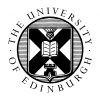© Pint of Science, 2025. All rights reserved.
Without blood, humans cannot survive. Blood is made up of many different types of cells that flow through a large network of vessels in the body. In “Simulating our cells” we look at how we can use computer simulations to design devices that can separate our cells either by type or disease, as well as improving our understanding of how the exchange of oxygen and nutrients between mother and baby occurs in the placenta.
Fluid flow inside a computer
Dr Timm Krueger
(Reader and Deputy Director of Research)
Microfluidics - fluid flow in channels similar in size to a human hair - plays an important role in medical applications, such as blood flow and disease diagnostics. My research group develops and runs computer simulations to study microfluidics. Our simulations help uncover fluid behaviour and design better devices for disease diagnostics.
Red blood cells in their own way
Dr Qi (Charles) Zhou
(Engineering Research Associate)
Red blood cells are the most abundant cells in the human body, and it’s crucial that they behave because we rely on them to transport oxygen and nutrients. My research uses computer simulations to reveal less-known secrets about the flow of red blood cells through tiny vessels or passages in our body that are even smaller than the cells themselves.
Map data © OpenStreetMap contributors.
